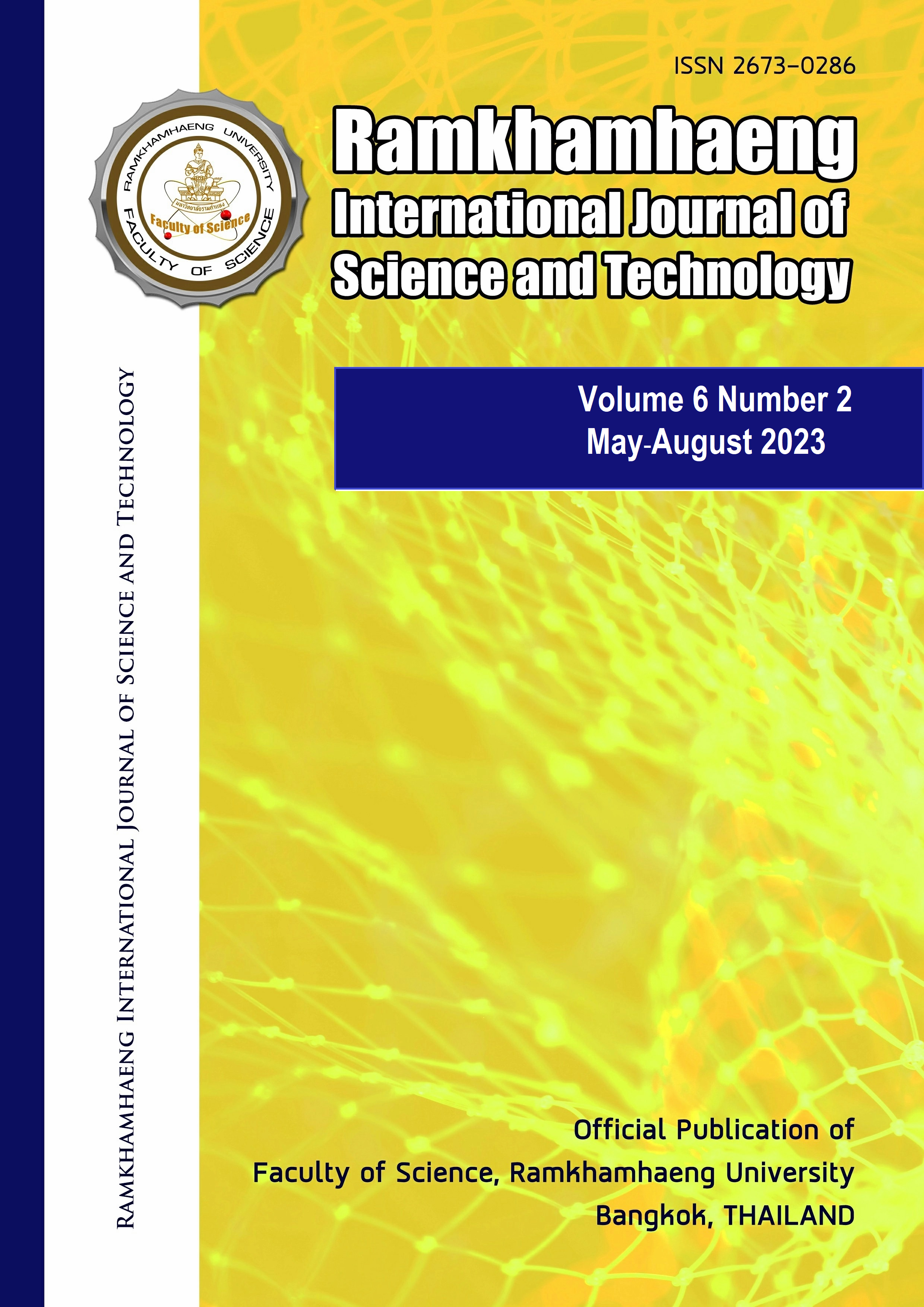Determination and detection of water-extractable protein from latex gloves
Keywords:
Bradford method, Latex glove, Modified Lowry method, Natural rubber latex (NRL), Water- extractable protein (WEP)Abstract
Natural rubber latex (NRL) from the rubber tree (Hevea brasiliensis) is used in various products. However, the NRL protein is generally of concern to medical personnel and regular users. In this study, a phosphate buffer saline (PBS) extraction was introduced to facilitate the evaluation of water-extractable proteins (WEPs). The six WEPs, five different gloves, and NRL samples were determined and compared using Bradford and modified Lowry methods, respectively. An appropriate incubation time for protein extraction was at least 60 min. The standard curve of protein determination showed a good linear correlation (R2 = 0.99). Samples had higher WEP contents when determined by the modified Lowry method. In addition, WEP patterns were detected by polyacrylamide gel electrophoresis with sodium dodecyl sulphate (SDS-PAGE). The SDS-PAGE showed 7–9 bands with molecular weights ranging from 9.0 to 66.6 kDa. This indicates that PBS extraction can be efficiently used to evaluate allergies
References
Baur X, Chen Z, Raulf-Heimsoth M, Degens P (1997) Protein and allergen content of various natural latex articles. Allergy 52:661-664
Deval R, Ramesh V, Prasad GB, Jain AK. (2008) Natural rubber latex allergy. Indian J Dermatol Venereol Leprol 74(4):304-10
Docena GH, Benitez P, Fernandez R, Fossati CA (2000) Identification of allergenic proteins in condoms by immunoenzymatic methods. Ann Allergy Asthma Immunol 85:77-83
Fisher BR, Tomazic VJ, Withrow TJ, Matesic LE (1993) Variations in latex protein profiles. Clin Materials 14:199-205
Hasma H, Amir-Hashim MY (1997) Changes to NR latex proteins on processing the latex to its products. J Nat Rubber Res 12:21-32
IUIS-International Union of Immunological Societies. (2011) Allergen nomenclature sub-committee allergen nomenclature. http://www.allergen.org.
Kalapat N, Watthanachote L, Nipithakul T (2009) Extraction and characterization of proteins from skim rubber. Kasetsart J 325:319-325
Koch (1997) Regulatory aspects of latex allergy (CEN; extractable protein and allergen assays for latex gloves). Rev Fr Allergol 37:1201-1210
Lucas AD, Tomazic VJ (2000) Modification of the Lowry method for analysis of soluble latex proteins. Toxicol Methods 10:165-179
Mæhre HK, Dalheim L, Edvinsen GK, Elvevoll EO, Jensen I-J (2018) Protein determination-Method matters. Foods 7(1):5 https://doi.org/10.3390/foods7010005
Miikinen-Kiljunen M, Turjanmaa K, Palosuo T, Reunala T (1992) Characterization of latex antigens and allergens in surgical gloves and natural rubber by immunoelectrophoretic methods. J Allergy Clin Immunol 90(2):230-235
Perera ALHA, Perera BGK (2017) Development of an economical method to reduce the extractable latex protein levels in finished dipped rubber products. Biomed Res Int :9573021 doi: 10.1155/2017/9573021
Pichayakorn W, Suksaeree J, Boonme P, Taweepreda W, Ritthidej GC (2015) Preparation of deproteinized natural rubber latex and properties of films formed by itself and several adhesive polymer blends. Ind Eng Chem Res 51(41):13393-13404
Ranta PM, Ownby DR (2004) A review of natural rubber latex allergy in health care workers. Clin Infect Dis 38:252-256
Srisomboon A, Wadeesirisak K, Yaysse L, Sainte BJ, Musigamart N, Liengprayoon S, Bonfils F, Rattanaporn K, Bottier C (2021) Optimization of a protein extraction method from natural rubber sheets made of Hevea basiliensis latex. J Rubber Res 24:27-39
Sussman G, Beezhold D, Kurup V (2002) Allergens and natural rubber proteins. J Allergy Clin Immunol 110:S33-39
Tomazic VJ, Lucas AD, Lamanna A, Stratmeyer M (1999) Quantitation of natural rubber latex proteins: evaluation of various protein measurement methods. Toxicol Methods 9(3):153-164
Tomazic VJ, Lucas AD (2002) Protein and allergen assays for natural rubber latex products. J Allergy Clin Immunol 110(2):S39-S44
TRGS (2000) Technische Regeln für Gefahrstoffe 540. Sensibilisierende Stoffe. Technische Regeln für Gefahrstoffe.
Yagami T, Sato M, Nakamura A (1993) Colorimetric determination of the total protein eluted from latex gloves. Bull Natl Inst Hyg Sci 111:84-87
Yip E, Cacioli P (2002) The manufacture of gloves from natural rubber latex. J Allergy Clin Immunol 110(2):S3-S14
Yusof F, Yeang HY (1992) Quantitation of proteins from natural rubber latex gloves. J Natl Rubb Res 7:206-217
Downloads
Published
Issue
Section
License
Copyright (c) 2023 Ramkhamhaeng International Journal of Science and Technology

This work is licensed under a Creative Commons Attribution-NonCommercial-NoDerivatives 4.0 International License.
Copyright Notice: a copyright on any article in the published journal is retained by the Ramkhamhaeng International Journal of Science and Technology. Readers or Users grant the right to use of the Article contained in the Content in accordance with the Creative Commons CC BY-NC-ND license and the Data contained in the Content in accordance with the Creative Commons CC BY-NC-ND.



